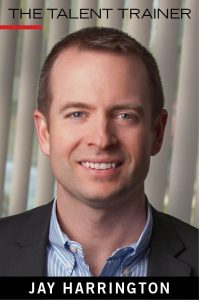Embrace the Chaos, Counselor
For those who crave control, the uncertainty of being at the beck and call of a partner or subject to the whims of an adversary is distinctly unsettling.
January 23, 2019 at 11:30 AM
7 minute read

With coffee and a fresh to-do list in hand, most days for most lawyers begin optimistically enough. Because of the adversarial nature of the law, however, a lawyer's day is uniquely capable of turning into a train wreck. As Mike Tyson said to a reporter in the run-up to his fight against Evander Holyfield, “Everyone has a plan until they get punched in the mouth.”
We've all read about the rising rates of stress, anxiety, and depression among lawyers. The data is clear and compelling but the root causes of the mental health conditions that seem to inordinately affect lawyers—including many young lawyers—are uncertain. I'm not a mental health professional, nor do I pretend to play one on the internet, but in my experiences of both coaching young lawyers and having been one myself in a fast-paced law firm environment, it seems obvious that one of the primary sources of day-to-day stress is the fact that one's expectations of how the day will go (the “plan”) almost always get derailed through someone else's intervention (the “punch”). Chaos is always lurking, a mere phone call or email away.
For some, the chaos is not an issue. They're able to lithely roll with the punches and get through their days unscathed. But the disposition of most lawyers is different. The legal profession tends to attract high-achieving “Type A” personalities who like to control situations and win. For those who crave control, the uncertainty of being at the beck and call of a partner or subject to the whims of an adversary is distinctly unsettling.
As with most problems, the first step in dealing with this one is accepting it. The uncertainty is not going away. The best path forward is to embrace the chaos and learn to dance with it. If you have more realistic expectations of how your days will go, then you'll have better outcomes.
A big part of setting better expectations is knowing yourself. But there are some universal principles—”laws” of the universe, if you will—that impact each of us, and, when not taken into account, lead to unmet expectations.
 It will always take longer than you think. A typical lawyer's day is punctuated by deadlines. There's a constant stream of tasks that need to get completed by certain dates. Yet, despite there being certainty about the deadlines, legal projects seem to perpetually end in mad scrambles that lead to stress, at best, and consequential mistakes, at worst. Over and over, the amount of time required to complete projects gets underestimated.
It will always take longer than you think. A typical lawyer's day is punctuated by deadlines. There's a constant stream of tasks that need to get completed by certain dates. Yet, despite there being certainty about the deadlines, legal projects seem to perpetually end in mad scrambles that lead to stress, at best, and consequential mistakes, at worst. Over and over, the amount of time required to complete projects gets underestimated.
There's a name for this tendency, coined by author and professor of cognitive science Douglas Hofstadter. It's called “Hofstadter's Law,” which stands for the proposition that: “It always takes longer than you expect, even when you take into account Hofstadter's Law.”
In an ideal world, writing a brief might take a day. But, of course, the working environment in a law firm is far from ideal. Inputs and distractions fly at you like fastballs from a pitching machine. Despite your best intentions, you can't help but bounce back and forth between tasks. Accordingly, that brief will always take longer than you think. Set your expectations—and your schedule—appropriately.
Something will always go wrong. Anyone who has written, proofread, filed and served a pleading has experienced the dreadful moment of opening the document on the court's docket and immediately recognizing the typo jumping off the page. Mistakes happen, no matter how conscientiously you attempt to avoid them. These circumstances are evidence of the universality of “Murphy's Law”: “Anything that can go wrong will go wrong.”
No matter how carefully you plan, no matter how rock-solid your process is, no matter how conscientious you are, there will be problems. Do your best to anticipate them, but accept the fact that problems are inevitable.
You'll get bogged down by trivial matters. One of the most challenging learning curves that young lawyers must navigate involves developing the judgment necessary to distinguish the important from the trivial. For example, when faced with a research assignment, there are many “rabbit holes” that a lawyer can travel down. But for every 10 possible issues that can be explored, only one may be material. Going down the wrong paths, and chasing every triviality, leads to missed deadlines, the feeling of being overwhelmed, and ineffectiveness.
British naval historian and author Cyril Parkinson is credited with defining the “Law of Triviality,” which relates to the tendency of people and organizations to give disproportionate attention to trivial issues and details.
If you approach each assignment with an expectation that there are nearly infinite issues to explore, you'll twist your mind into a knot. Before diving in, take a moment to define what's truly important. Ask some questions of the partner-in-charge and the client. Understand their expectations—don't merely get caught up in your own.
You can do anything, just not everything all at once. If you made it through law school and got hired by a law firm, then you have the capacity to succeed in this profession. One of the biggest challenges you'll face, however, is avoiding the burnout brought on by the stress of the job. There's no getting around the fact that your days will be chaotic. That's the nature of a fast-paced, adversarial endeavor. Once you accept that fact, you can learn to dance with the chaos. Instead of expecting everything to go perfectly, anticipate the myriad ways in which you'll get thrown off track, and then plan and act accordingly.
Here are a few ways to prepare yourself for what's ahead:
Set realistic goals based on past experiences, not on some idealized version of what the future may hold. Improvement happens slowly and sequentially—you won't develop superpowers overnight.
- Recognize that mistakes are inevitable. Instead of being paralyzed by the fear of making another one, learn from your mistakes and bounce back stronger.
- Take care of yourself. If you want to make this your career and experience success over the long term, you need to find some semblance of balance now, and not hope for it later.
- Come to grips with the fact that the practice of law is stressful, especially as a young lawyer. The stress will never go away, but over time, as you get better at what you do and you get more experience under your belt, you'll come to appreciate that there's a solution to almost every problem.
- Don't be afraid to ask for help. It's important to take ownership of your work but there's no award handed out at the end of the year to the associate who struggles and grinds through every issue on their own.
Jay Harrington is an executive coach and trainer for lawyers and law firms and is the author of the new book, “The Essential Associate: Step Up, Stand Out, and Rise to the Top as a Young Lawyer.” He is the owner of Harrington Communications and is associated with Simier Partners. Contact him at [email protected].
This content has been archived. It is available through our partners, LexisNexis® and Bloomberg Law.
To view this content, please continue to their sites.
Not a Lexis Subscriber?
Subscribe Now
Not a Bloomberg Law Subscriber?
Subscribe Now
NOT FOR REPRINT
© 2025 ALM Global, LLC, All Rights Reserved. Request academic re-use from www.copyright.com. All other uses, submit a request to [email protected]. For more information visit Asset & Logo Licensing.
You Might Like
View All
'A Template' for Religious Accommodation: Attorney Gives Insight to $12M Win Over Employer's COVID-19 Vaccination Policies

Georgia RICO Case Against Trump Likely to Avoid Trial Amid Election Win, Nationally-Known Law Professor Says

'Nothing Is Good for the Consumer Right Now': Experts Weigh Benefits, Drawbacks of Updated Real Estate Commission Policies

Evaluating the Biden Administration's Business and Human Rights Agenda
10 minute readTrending Stories
- 1Lavish 'Lies' Led to Investors Being Fleeced in Nine-Figure International Crypto Scam
- 2AstraZeneca Files Flurry of Lawsuits to Protect Cancer Treatment Drug
- 3American Airlines Legal Chief Departs for Warner Bros. Discovery
- 4New Montgomery Bar President Aims to Boost Lawyer Referral Service
- 5Deadline Extended for Southeastern Legal Awards
Who Got The Work
Michael G. Bongiorno, Andrew Scott Dulberg and Elizabeth E. Driscoll from Wilmer Cutler Pickering Hale and Dorr have stepped in to represent Symbotic Inc., an A.I.-enabled technology platform that focuses on increasing supply chain efficiency, and other defendants in a pending shareholder derivative lawsuit. The case, filed Oct. 2 in Massachusetts District Court by the Brown Law Firm on behalf of Stephen Austen, accuses certain officers and directors of misleading investors in regard to Symbotic's potential for margin growth by failing to disclose that the company was not equipped to timely deploy its systems or manage expenses through project delays. The case, assigned to U.S. District Judge Nathaniel M. Gorton, is 1:24-cv-12522, Austen v. Cohen et al.
Who Got The Work
Edmund Polubinski and Marie Killmond of Davis Polk & Wardwell have entered appearances for data platform software development company MongoDB and other defendants in a pending shareholder derivative lawsuit. The action, filed Oct. 7 in New York Southern District Court by the Brown Law Firm, accuses the company's directors and/or officers of falsely expressing confidence in the company’s restructuring of its sales incentive plan and downplaying the severity of decreases in its upfront commitments. The case is 1:24-cv-07594, Roy v. Ittycheria et al.
Who Got The Work
Amy O. Bruchs and Kurt F. Ellison of Michael Best & Friedrich have entered appearances for Epic Systems Corp. in a pending employment discrimination lawsuit. The suit was filed Sept. 7 in Wisconsin Western District Court by Levine Eisberner LLC and Siri & Glimstad on behalf of a project manager who claims that he was wrongfully terminated after applying for a religious exemption to the defendant's COVID-19 vaccine mandate. The case, assigned to U.S. Magistrate Judge Anita Marie Boor, is 3:24-cv-00630, Secker, Nathan v. Epic Systems Corporation.
Who Got The Work
David X. Sullivan, Thomas J. Finn and Gregory A. Hall from McCarter & English have entered appearances for Sunrun Installation Services in a pending civil rights lawsuit. The complaint was filed Sept. 4 in Connecticut District Court by attorney Robert M. Berke on behalf of former employee George Edward Steins, who was arrested and charged with employing an unregistered home improvement salesperson. The complaint alleges that had Sunrun informed the Connecticut Department of Consumer Protection that the plaintiff's employment had ended in 2017 and that he no longer held Sunrun's home improvement contractor license, he would not have been hit with charges, which were dismissed in May 2024. The case, assigned to U.S. District Judge Jeffrey A. Meyer, is 3:24-cv-01423, Steins v. Sunrun, Inc. et al.
Who Got The Work
Greenberg Traurig shareholder Joshua L. Raskin has entered an appearance for boohoo.com UK Ltd. in a pending patent infringement lawsuit. The suit, filed Sept. 3 in Texas Eastern District Court by Rozier Hardt McDonough on behalf of Alto Dynamics, asserts five patents related to an online shopping platform. The case, assigned to U.S. District Judge Rodney Gilstrap, is 2:24-cv-00719, Alto Dynamics, LLC v. boohoo.com UK Limited.
Featured Firms
Law Offices of Gary Martin Hays & Associates, P.C.
(470) 294-1674
Law Offices of Mark E. Salomone
(857) 444-6468
Smith & Hassler
(713) 739-1250








